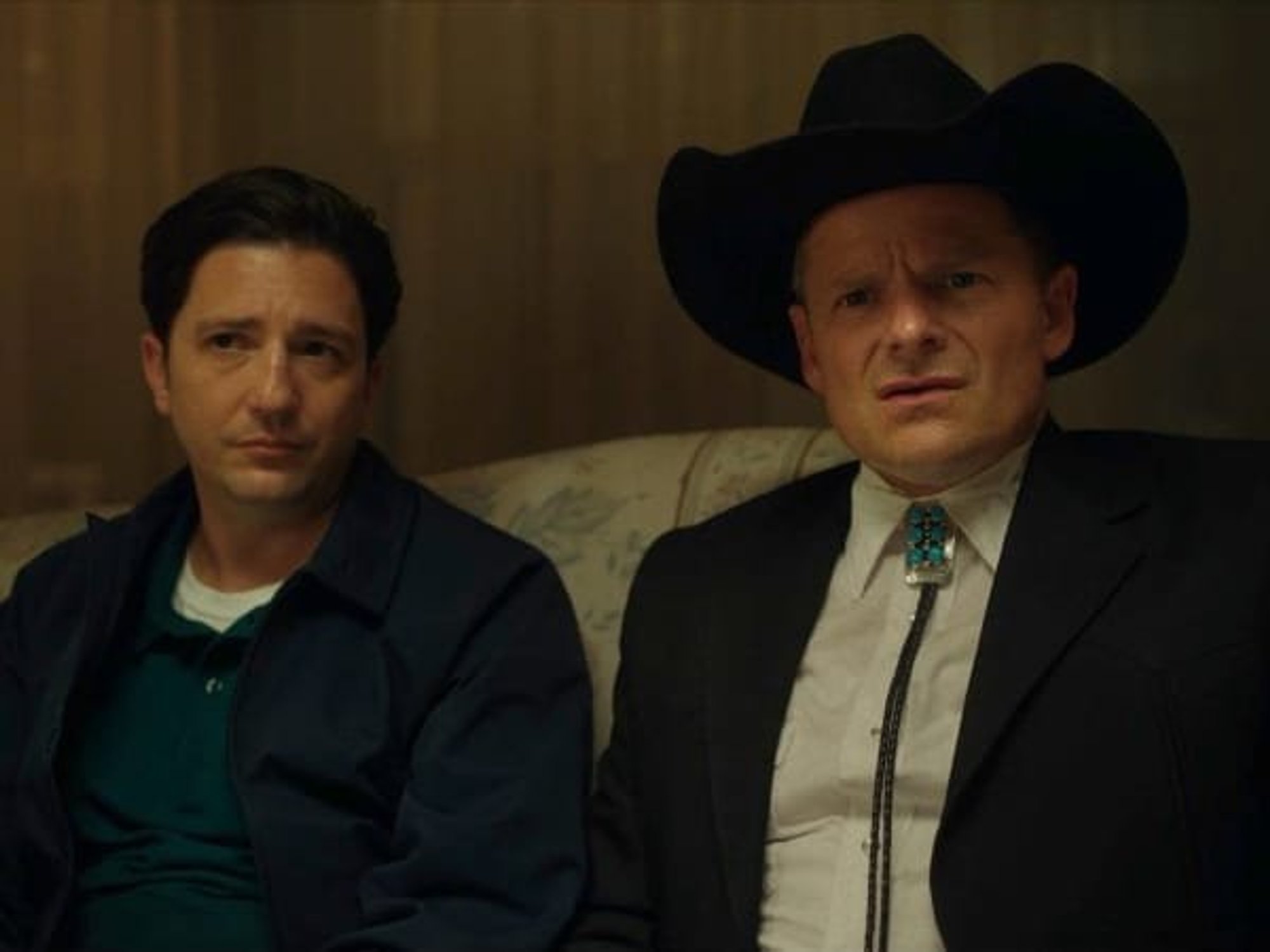If you go by the movies, life in small towns can either be quaint and neighborly, or drudgery where even the smallest change to the daily routine can be cause for excitement. The latter is certainly the case in LaRoy, Texas, where a case of mistaken identity leads to the small Texas town having more crime than it’s seen in its entire existence.
Ray (John Magaro) is a sad-sack character seen as a pushover by the most important people in his life: His former beauty queen wife, Stacy-Lynn (Megan Stevenson), and his brother Junior (Matthew Del Negro), who manages the hardware store where they both work. Early in the film, Ray is shown evidence that Stacy-Lynn might be cheating on him by wannabe private detective Skip (Steve Zahn), bringing even more misery into his life.
While sitting in a parking lot, lamenting his horrible life, one night, Ray is approached by a man with an envelope full of money and a request to kill a man. Although initially taken aback, Ray decides to take the job if only to bring something different and exciting into his life. The real hitman (Dylan Baker) doesn’t take kindly to someone stealing work from him, and Ray soon finds himself in several situations that upend his world completely.
Written and directed by Shane Atkinson, the film is a lightweight but still enjoyable take on a Fargo-esque story. The fact that Ray has three separate elements with which to deal — his cheating wife, the seemingly ever-present Skip, and his inadvertent entry into the world of crime — gives Atkinson different avenues into which to channel the story, which keeps the film from becoming repetitive.
He also upends expectations at multiple points in the film, from the excellent opening scene to the climactic sequence. While some of the characters adhere to storytelling conventions, several take detours that keep the film from relying too much on Texas stereotypes. Ray especially keeps viewers on their toes, as just when it seems he’s becoming predictable, he makes an unanticipated choice.
The film does get bogged down a bit in the middle section after an initial jolt of energy that comes with the set-up of the story. Stacy-Lynn and Junior are both mostly one-note characters whose importance to the plot doesn’t help them much. The real hitman, after making a great first impression, recedes into the background too often. The few times he does pop up make you wish his role called for him to be in more scenes.
Magaro is good casting for this role, as — much like he did in Past Lives — he plays the well-meaning guy who is overshadowed by others in a way that makes you root for him and hate him at the same time. Zahn has the type of face that allows him to easily play the comic relief, but he’s also good in more earnest moments. Baker makes the most of his relatively limited screentime; if only had had more.
LaRoy, Texas doesn’t do enough to be a completely absorbing crime thriller, but with a few good performances and a story that’s familiar but still surprising, it has more highs than lows. With a deadly crime spree the most interesting thing to happen in this small town, it might be worth visiting again.
---
LaRoy, Texas is available on demand.
